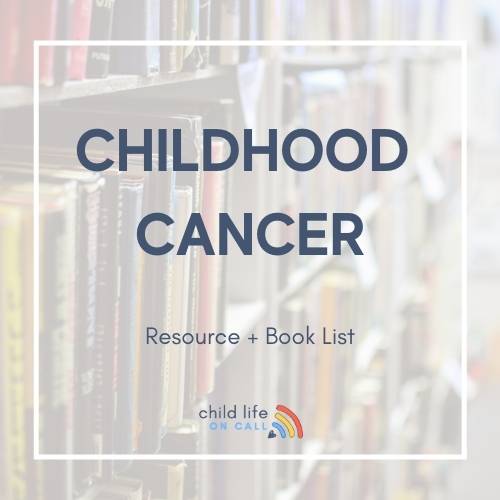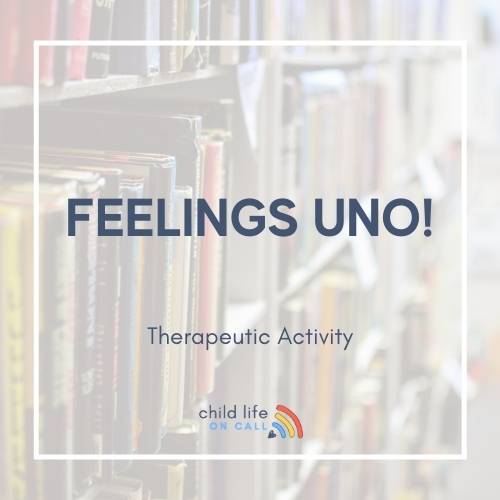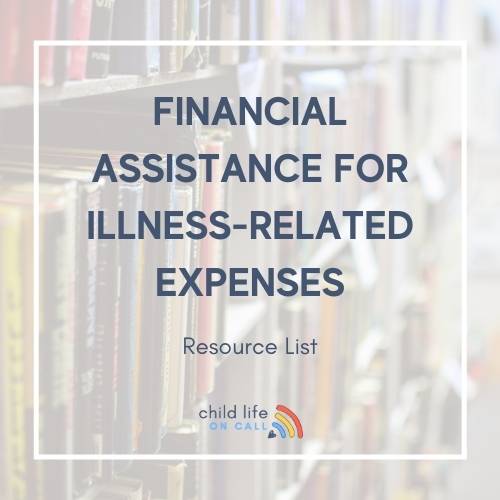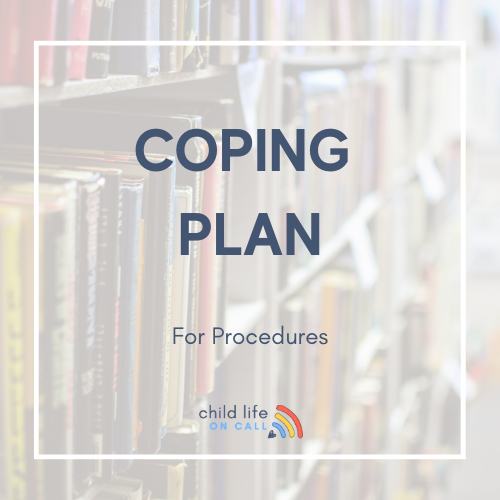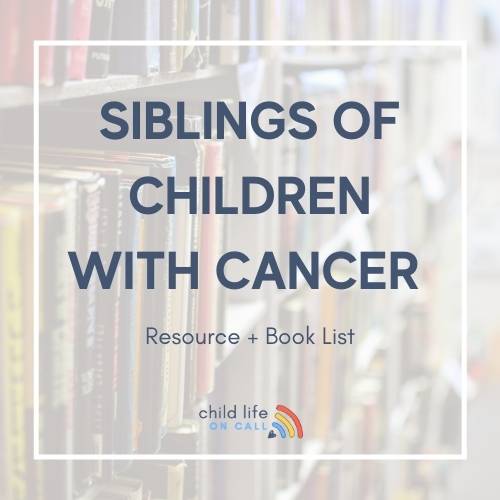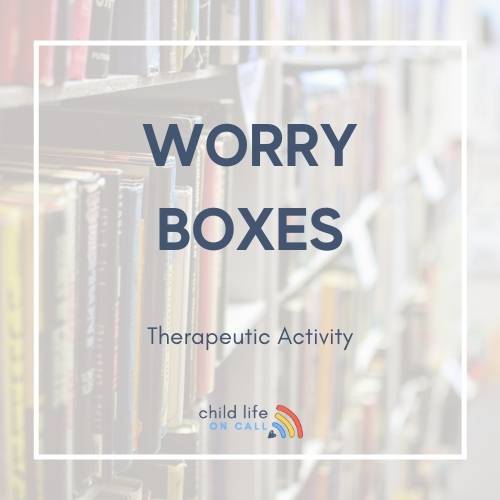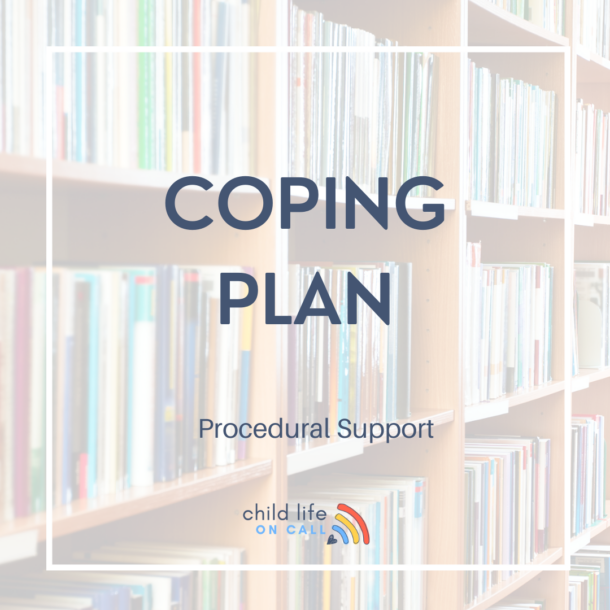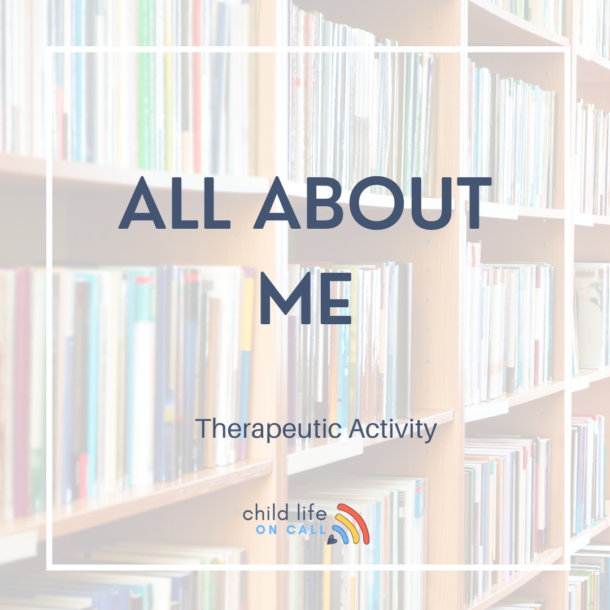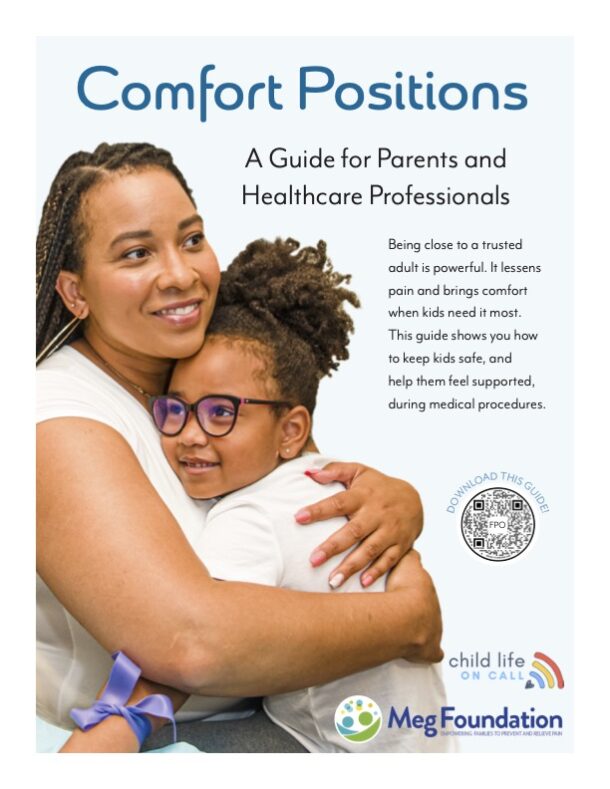April is Child Abuse Prevention Awareness Month. We have reposted this episode to bring awareness and give you tangible tools to speak with your kids about child abuse. Today’s guest expert is Jane Donovan, who is a child abuse prevention advocate. "And like we say in...
Episode 195 | Mackenzie’s Story- A daughter with Caudal Regression and a Tethered Cord
Podcast Show Notes
Do you want to develop the skills to effectively advocate for your child’s healthcare needs while navigating unexpected medical conditions? Are you searching for a solution that will empower you to confidently navigate your parenting journey? Look no further, because I am here to share the key to achieving the desired outcome of improved ability to advocate for your child’s healthcare needs. By providing you with valuable insights and strategies, I will equip you with the tools necessary to confidently navigate the challenges that arise when parenting a child with unexpected medical conditions. Get ready to embark on a journey of growth and empowerment as you discover the power of advocacy in your child’s healthcare journey.
I come from a family where I have a stepmom that’s a doctor, my dad’s a pharmacist, my sister’s a PA… I appreciate everything they do. But then at that moment, it felt like my husband did not have a choice. We have to do this. We have to trust and let this happen. – Mackenzie Carolin
My special guest is Mackenzie Carolin
Mackenzie Carolin, a parent from Florida, joins us on this episode of Child Life On Call. Mackenzie shares her personal journey as a mom navigating unexpected medical conditions with her child. With a background in the medical field and surrounded by family members in healthcare professions, Mackenzie brings a unique perspective to the challenges faced by families in similar situations. From the initial shock of discovering her daughter’s condition to the emotional rollercoaster of hospital visits and uncertainty, Mackenzie’s story highlights the importance of trust, human connections, and advocating for your child’s healthcare needs. Join us as Mackenzie shares her experiences and provides valuable insights for parents in similar situations.
This is Mackenzie Carolin’s story:
Mackenzie’s journey as a parent took an unexpected turn when her daughter, Madeline Liv, was born with unusual birthmarks on her back and buttocks. At first, Mackenzie didn’t think much of it, assuming they were just extra birthmarks. But as they were about to leave the hospital, the pediatrician wanted to conduct some tests to rule out any underlying issues. Little did Mackenzie know that these tests would reveal a severe tethered spinal cord in her precious baby girl. The news hit Mackenzie hard, as her previous experiences with her two healthy boys had been relatively smooth. Suddenly, her world was turned upside down, and she found herself thrust into a realm of medical specialists and uncertainty. With the support of her family and a newfound determination to advocate for her daughter, Mackenzie embarked on a journey to find the right doctors and navigate the complexities of her daughter’s condition. It hasn’t been easy, but Mackenzie’s resilience and commitment to her daughter’s well-being have been unwavering. Through her story, Mackenzie hopes to inspire and empower other parents facing unexpected medical conditions in their children, reminding them that they are not alone in their journey.
In this episode, you will be able to:
- Discover the transformative power of human connections in your child’s healthcare journey.
- Gain insights on navigating the complexities of child healthcare to ensure the best outcomes for your child.
- Learn effective advocacy strategies to support and empower your child with disabilities.
- Explore the importance of sharing personal experiences to inspire and uplift other parents in similar situations.
- Unleash the hidden potential within unexpected medical conditions and embrace the unique journey of parenting.
- Find solace and support in a community of parents who understand the challenges and triumphs of raising a child with unexpected medical conditions.
- Gain confidence in advocating for your child’s healthcare needs and be their strongest advocate.
Becoming an Advocate for Other Moms
Becoming a parent brings to life a fierce advocate within us that often lies dormant. It’s a natural progression from protecting and nurturing a child to carrying that momentum forward for others. Being an advocate for others lends purpose to personal experiences, turning them into beacons of hope and support for others navigating similar journeys. Mackenzie Carolin transformed her personal journey into a platform to support other moms. She found solace and empowerment in sharing her story and connecting with other parents facing similar challenges. This passion birthed from personal experience is a testament to the ripple effect of shared experiences, as her online presence continues to provide a safe space for others to shed their fears and find reassurances.
Empowerment through Seeking Second Opinions
For most parents, placing their child’s well-being in other’s hands is a daunting prospect. However, second opinions can serve as a valuable rescuer, empowering parents to maintain some control over their child’s health journey. Though it may be daunting, seeking alternate viewpoints can help reassure and confirm the path they are taking is right. Mackenzie Carolin leaned onto this empowerment tool as she navigated her daughter’s healthcare journey. Balancing between her inherent trust in medical professionals and seeking reassurance elsewhere. Her experiences shed light on the significance of trust and the freeing sensation of having some control amidst a seemingly uncontrollable situation.
Becoming an Advocate for Other Moms
Becoming a parent brings to life a fierce advocate within us that often lies dormant. It’s a natural progression from protecting and nurturing a child to carrying that momentum forward for others. Being an advocate for others lends purpose to personal experiences, turning them into beacons of hope and support for others navigating similar journeys. Mackenzie Carolin transformed her personal journey into a platform to support other moms. She found solace and empowerment in sharing her story and connecting with other parents facing similar challenges. This passion birthed from personal experience is a testament to the ripple effect of shared experiences, as her online presence continues to provide a safe space for others to shed their fears and find reassurances.
The resources mentioned in this episode are:
- Subscribe to the Child Life On Call podcast to hear more stories and expert episodes that empower parents to be confident advocates and partners with the care team during healthcare experiences.
- Share your own story on the Child Life On Call podcast. If you have a child with a medical experience, diagnosis, disease, or anything in between, reach out to Lyndsey at lyndsey@childlifeoncall.com.
- Take advantage of the emotionally safe spaces provided by child life specialists. If you or your child are going through a medical experience, consider seeking out a child life specialist to support, validate, and provide resources for you and your family.
- Prioritize open communication with healthcare providers. When going to doctor’s appointments or hospital visits, prepare a list of questions or concerns ahead of time to ensure you get the information you need. Consider using the hack of asking your provider to answer your questions first before diving into other topics.
- Educate yourself and stay informed about your child’s healthcare. Seek out reliable resources and stay up-to-date on any diagnoses, treatments, or procedures your child may be undergoing. This knowledge will help you feel more confident in advocating for your child’s needs.
- ‘Connect with Mackenzie Carolin on Instagram.
Whether you are a parent or professional, we want you to join our community. Sign up for our newsletter here.
Parents, download our free parent starter kit.
When you download our starter kit, you’ll learn how to:
-
Give medicine to your child without it becoming a wrestling match
-
Prepare your child (and yourself) for a shot so they can feel less anxious
-
Create and use a coping plan for any medical appointment or procedure
The first sign of sniffles, or worse, shouldn’t send you into a tailspin. Feel confident in your role as a parent and advocate, no matter what medical situation you’re facing.
Child life specialists, get affordable PDUs on-demand here.
Shop for your CLOC gear here.
00:00:05
Hello, my friends. Welcome to Child Life On Call on call. This podcast is a safe place for parents to share their stories about what it’s like to have a child that has a medical experience, diagnosis, disease, and or everything in between. We know there is power in sharing stories, and that power multiplies when you can listen to other parents who have walked a similar path to yours. Giving and getting advice is great, but hearing how another parent navigates the complexities and nuances of healthcare is even better.
00:00:35
As a child life specialist, my role is to support, validate, and provide emotionally safe spaces for kids and their families, and I am so honored to be on this journey with you. In addition to parent stories, we sprinkle in some expert episodes every now and again that have content for both parents and professionals in the field of healthcare, all with the mission to empower parents to be confident advocates and partners with the care team during healthcare experiences. We’re so glad you’re here. I feel so much more connected to families than I did when I was working in the hospital, because, number one, you’re juggling so many families. Right.
00:01:13
I don’t ever just have one patient. I usually have almost a caseload of ten to 20, but I get to sit here with you and spend time just learning all about you, and I’m really grateful to be able to do this. It’s definitely more one on one. Yeah. And there’s not those barriers of, like, I’m a clinician and you’re a parent, or I feel that when I go into the doctor’s office for myself, those barriers are just gone.
00:01:38
When you podcast with someone, it’s really cool. When you’re in the hospital or the doctor’s office, it’s like, okay, you get your five questions out, even get that time and get them back. And it’s like, okay, bye. I’m like, all right, and I don’t. Know about you, but it’s like you have your five questions in mind, and if they’re talking about something else, you’re not even listening because you’ve got your own questions in mind.
00:01:59
I’m like, I always try to have somebody with me because I’m like, I leave the doctors and I’m like, I have no idea what just happened. I’m like, okay, great. That was awesome. Yeah. No, it’s like a proven thing.
00:02:13
Like, you don’t retain almost up to 80% of what the doctor tells you. So my hack for that is when you go in, you tell the doctor, like, I want to hear what you have to say, but I won’t concentrate until you answer these five questions, so can I please ask them and then we can talk? Because otherwise it really is hard to have a really deep or in depth discussion with your provider because you’re thinking about what you came to the visit for. You’re like, I forgot these questions last time. I need to say them again, and then we can get to what you want to talk about exactly?
00:02:47
Well, why don’t you let our listeners know who you are a little bit about your family and just about you as a mom. Okay, so my name is Mackenzie. I’m born and raised in Florida, right by the beach, a little beach town, and I went to high school here and met my husband in high school, and we fell in love. And five years later we had our first child. And we were young parents, but that didn’t change anything.
00:03:17
We were fully involved with our child, and I became a stay at home mom at that time, and that just became my world, was being a mom. And I felt so grateful to have that time with my child. And fast forward, we had another baby two years later, and then we got married. And then a year later we found out we were pregnant with our last baby, which is Madeline Live. We were over the moon because we had two boys, and we were just like, so curious if we were have, I was just so destined to be a boy mom.
00:03:58
I’m like, there’s no way we’re going to have a little girl. But we were so over the moon when we found out we were going to have a baby girl. And I had a normal pregnancy, normal delivery, everything was perfect. I mean, I’m really an amazing pregnant woman. I love to experience delivering.
00:04:22
And everything was perfect until I delivered her. And my husband came to me and said, wow, she has these weird birthmarks all over her butt. And I’m like that’s. Strange. And even the nurses came and she’s like, you want to believe how many birthmarks are around her back and butt area?
00:04:44
And at that time, nothing even crossed my mind. I just thought, wow, okay, so she has some extra birthmarks. Not a big deal. And it wasn’t until we were about to leave the hospital we were getting ready to pack up and so Liv could meet her brothers. And the pediatrician came and said, I just want to do a couple tests just to kind of rule out things, because usually if there’s something showing from the outside, there’s kind of maybe a sign something’s wrong in the inside.
00:05:17
And so still, I really didn’t think anything of it. I honestly was like, she’s fine, she’s perfect. I’ve never had any issues, two healthy children, and it’s just crazy to think that was my thought process. Just like, I thought everything was just perfect. She’s perfect, we’re going home, she’s going to meet her brothers, everything’s fine.
00:05:44
And so my husband went to get the ultrasound with her, and he came back, and we still didn’t really have many answers until the pediatrician came and was like, I want to talk to you about some things that we’re really looking what we think it could be. And that’s when she said, I think your daughter might have a tethered spinal cord. And anytime I think any neural tube defect, any kind of spinal cord issue, I just automatically thought of spina bifida. That is like my first I try to connect the two and she’s like it’s kind of like spinal bifida, but it’s not that’s not what she has. I really think that she needs to get further testing.
00:06:35
And so I was just so confused. I just didn’t think that this is possible. Everything was perfect. We did all the testing. We did the ultrasounds.
00:06:50
I’m like, how was it? Five minutes ago, we were just going to go home, and now we have to stay. And so I was so taken back from it, and I tried to really for it to hit me, and I couldn’t get into reality for me. And they brought us to the NICU, and I will never forget that moment. Oh, my God, I’m going to start crying.
00:07:19
It was just like, such a pivotal moment of realizing how grateful we have been to have these normal, beautiful children. And now I get this glimpse of what so many families have to go through. And so we get to NICU and they’re like, we have to take you to a bigger hospital. And I’m like, what is happening? It just felt like a bad dream that I just kind of wake up from.
00:07:58
Obviously, we’re from a little, small beach town. They don’t do big things, and they just kept telling us they don’t know what’s wrong. They’re like, I don’t know, and how can I’m like, me and my husband? Like, that the worst. We were just so grateful for that time we had with her.
00:08:20
We didn’t know what was going to happen. We were just so grateful. We had the 24 hours with her. And so they came to us and they said that she had to go to Orlando, which is about an hour away, and we cannot go in the ambulance with her.
00:08:43
And that’s like the first we’re supposed to be going home together, right? Our ride is supposed to be with yeah. Oh, you know what? That’s such a specific moment. That is another thing that’s, like, taken away of all these we’re supposed to go meet brothers.
00:09:03
We’re supposed to be on our way home. I was supposed to sit next to her in the backseat on the way to our car, and now she’s in an ambulance, and I can’t even be next to her. It’s just such, like, a crazy moment, like, you don’t think could happen. You really don’t put yourself into that position until this mode is like, this is what’s happening. Yeah.
00:09:25
And so we are so grateful that we know a lot of people in our town, and we knew some people that worked in Orlando that got to talk to us and kind of tell us we knew who was actually driving the ambulance. Wow, that was such a great moment to feel like, okay, at least if we can’t be in the well, we’re going to be right behind that ambulance the entire way. But at least a familiar face, that’s. Such another really important part, is that human connection with the people taking care of your baby, your child. It’s essential to you getting some peace of mind, like, okay, if I can’t be there, I know with myself when I’m working with families, the mom will look at me and be like, if you’re there, I’ll be okay if I can’t be.
00:10:21
And what a special spot for me to be able to be in. And not only the mom trusts me, but the child trusts me too. And something I don’t take lightly, but it’s like, you have to have those human connections and be like, you got my girl. And that’s so important. Absolutely.
00:10:38
It’s such a human connection and having that and feeling that it’s so important. And so, luckily, I come from a family where I have a stepmom that’s a doctor, my dad’s a pharmacist, my sister’s a PA, her husband’s a PA, my mom. So I come from this community where I’m so grateful for the medical field, and I appreciate everything they do. But then at that moment, I’m like, it felt like my husband did not have a choice. We have to do this.
00:11:19
We have to trust and let this happen. We need to figure out what’s going on. So it was such a drastic moment when that happened, but I remember my husband staying up in NICU for me to go home. And while all this is going on, I’m still trying to take care of myself. Like, I just had a baby 24 hours ago, but I remember just going home real fast, getting things I didn’t know how long we would be in Orlando for, and going to say goodbye to my boys and them just being so confused as to what was going on.
00:11:55
I’m just like, you’re going to stay with Gigi and Papa for a little bit. We have to stay just a little bit longer. You’ll meet her soon. But I just remember having I didn’t want to see them see me upset, so just trying to stay strong for them and giving them kisses and driving back to the NICU. And it was around like, three in the morning at this time, of course, right.
00:12:22
Always like the middle of the night, you’re so exhausted, all you want to do is sleep. There’s nowhere to sleep in the NICU, so you just have to go. And finally the ambulance comes and they take Liv. And I remember me and my husband running, like, sprinting to the car and just making sure, okay, that’s the ambulance get right behind it. Right.
00:12:46
Luckily, I got to sleep for an hour, and when we got there, they brought her back to do the emergency MRI. And I remember a neurosurgeon coming in and them confirming that liv has a severe tethered spinal cord. And still at that time, I don’t know why it just didn’t hit me. I just couldn’t believe what was happening. I think luckily, the worst thing that has ever happened to my children was a broken arm.
00:13:20
And I’m like, you know what? You do these steps. You go see the doctor, you get a cast, you go back, you get the cast removed. It’s a fixed thing. And then you go on about your day and they’re happy children and that’s it, right?
00:13:35
And with this, it’s like no, it’s not like you go into the doctor and you go back and it’s fixed. Like, this is something she’s going to be living with.
00:13:49
I had my sister talk to me about it and stuff, and she really opened my eyes. I really tried not to Google so much, but I didn’t know how I was going to cope with it. That was the diagnosis for her. We stayed there for two days and we came home and there was these list of specialists that we had to get her to. And I was so just so confused.
00:14:19
I didn’t know where to go, what to do, what the first step was. I didn’t know if I was going to be open about it. I didn’t know if I was going to tell people. I kind of just wanted to tuck it away and it never happened. And I think it was like a week after we got that news, I was like, this is just not the way to do Know.
00:14:43
This doesn’t mean this is it for know. This is just something that happened with her and we’re going to figure it out. So pretty much what we did, we went to her first pediatrician’s appointment in Ormond Beach, where they told us that her complications are too much for them and they pretty much denied us and told us that we need to find somebody that could handle her. And so we went to Orlando again and found all of her specialists and her pediatrician and a patient care coordinator, which has been incredible to get together and to get everything situated. The birthmarks were actually not birthmarks, they’re hemagiomas, and they range all from her back to her lower butt to her lady parts.
00:15:41
So that was a huge sign of the spinal cord injury. Wow. What did it feel like? I often say one of the best things about being a parent, and something not a lot of people know, is that you actually can choose your care team and that if you’re not vibing with a pediatrician, you can find another one you do vibe with. You’re not locked in a contract.
00:16:05
You can leave at any time and go get another opinion. And that’s incredibly empowering. But it’s not that empowering when they tell you you’re too much, your child is too sick. I’ve heard that people have been told your child’s the sickest one in the NICU. Your child’s the sickest one in the hospital right now, and it doesn’t feel good when that choice is made for you.
00:16:26
But ultimately you probably ended up in the best place you could have, but it’s not an easy path that you got there. I know it was so, like, I was sort of taken back by it, but then I knew that she did need somebody bigger that could understand her case. And like my family being in the medical field, I know how important it is to not only advocate for yourself, but for your children. And so I knew that, okay, we’ll find a new pediatrician and if we don’t love her, then we’ll go to a new one. We’ll make sure we find the perfect fit for her along with all of her specialists as well, too.
00:17:05
How did you start finding your voice in advocating for herself and for your family needs? Was it right up at the beginning? I’ve heard from a lot of parents, it’s a spectrum, right? Some are like, I woke up out of anesthesia after my seat section, like, yelling for what I needed. And then some are like, it took years of practice.
00:17:27
Where do you fall in that spectrum? I think what was for me was I was a young mom and none of my friends had kids at the time, and I was learning all these new things. Breastfeeding was a huge thing for me. I want to give up right away. I was I hated it.
00:17:51
Same, my husband sat down and was like, you need to try to work. I know you’re exhausted and tired, but you just need to try to work at it. And so I did. I went and looked for support groups and I never was like this. I would never put myself into that position.
00:18:08
I’m like, no, I’m good. I’m going to wash my hands, be done with it. And I really started using my voice with breastfeeding and showing the importance of it being in these support groups. And I feel like that was like the start for me. I became this breastfeeding mom in Ormond Beach.
00:18:26
I had so many new moms reach out to me. I went and helped people in the hospital. It was like this huge thing of breastfeeding issues. Go to Kenzie. And so I think that was like the start of it.
00:18:39
I always had that. I was always so obsessed with just trying to help new moms with breastfeeding, even old moms that have wanted to but can in the past. And so I think that was just really the beginning and I always held on to that. And that was my biggest issue with my first child. And then I had my second and was still that.
00:19:03
And then with Liv, I was still big on the breastfeeding thing and I didn’t want my whole thing to change to this medical mom. In the beginning, I was just so not ready to open up about it until a couple of weeks after I had her. And I was like, you know what? There’s going to be. And I know there has before me so many moms in this position where they don’t know where to go.
00:19:30
They don’t know who to go to or who to talk to, and they just feel stuck in this position where they want to keep it and bury it. And I want to be that advocate that they could come to or relate to. And that’s where I kind of started advocating for any kind of visible disabilities or disabilities altogether when it comes to. You finding your voice and advocating. And it sounds like you almost created, like, a little community for yourself too, right?
00:20:05
You were saying, desperate to find another mom who had gone through something else. What have those relationships been like with those parents that you found? So with the medical mom side, it’s an incredible community. I thought I had motherhood pretty figured out with my kids, and I never knew this whole different side of motherhood. And it’s so beautiful to see all these medical moms come together.
00:20:34
I started when I found out about Liv’s diagnosis. She has the tethered spinal cord, and she also has Caudal regression syndrome, where she’s missing from her s two down. And so those were the two that I was really determined to figure out and find out, and I couldn’t really find much of it. And then I found some moms who showed me these support groups on Facebook, and I got into those, and I just posted it about Liv. And so many moms reached out to me.
00:21:08
I’ll never forget this mom. I think Liv was maybe a week old, and I posted her about in the tethered spinal cord group, and she automatically messaged me on Facebook and FaceTimed me and oh, my, like, do I answer? Like, I don’t know what to do. And I just did. And she was like, if I didn’t have that support at that moment, it was just such a beautiful moment of just accepting that phone call.
00:21:43
I had no idea who she was, but just having that moment with her. We spoke for about 30 minutes. She told me about her daughter. She said that her daughter’s disability was so much like Liz, and she just had to reach out and tell me that right now. It feels like a lot, and it’s okay to feel that, but don’t let that take away from the stage of the newborn stage and the first year of her life.
00:22:13
And she told me just to slow it down. It feels like a lot at the time, but just embrace every single moment. And that was such a pivotal moment for me as well. And you can really only hear that from another mom who’s been through it. There’s no other doctor or professional that can say slow down.
00:22:35
Because you’ll be like, yeah, but to have a mom be like and she’s right. Like, you don’t want to miss these moments because you’re drowning in fear and grief, which are all she’s also Liv is there, and you’re getting to learn about her. What are some of your favorite parts of Liv that you get to see in her personality? Oh, my gosh, she is the sassiest ever. She is so sassy and she knows it too.
00:23:05
She is like if you think of a princess, that’s exactly Flip is. And she owns it too. She knows with her brother she can get whatever she wants and with her dad, and it’s just like, so funny to see how she works it. I’m like, girlfriend. And even in physical therapy, when we go in there, the physical therapist is like, okay, here comes the Miss Sassy queen goes in there and she tells them what she wants to do, what exercises.
00:23:33
And then she’s like, okay, I’m done. And I’m like, It’s only been ten minutes.
00:23:40
And she’s so confident. Everything she does and anytime we’ve heard so many things that she might not be able to do, and she has done them. And it’s been such like a beautiful experience to see. What have you learned about yourself since becoming Liv’s mom that maybe you didn’t know before? So much.
00:24:06
She has changed me so much. Oh, my God. I know.
00:24:15
I didn’t know how much I needed her until I did.
00:24:22
I just thought, like, I had it all. Everything was just how it went. You have your kids, they go to school, you expect this. And when we had lived, that’s what we were expecting. I was expecting to go back to work.
00:24:40
I was expecting her to go to normal school. And those things can still be in the future. Nothing has to stay on pause forever. But she’s really shown me to slow down with my life because the Aquarius in me is just always in the future. And she has really shown me just to take every day by day.
00:25:06
Every day is so special. And she has shown me that just every moment counts. And it’s so beautiful to see that. And it’s changed me as a mother to take every moment like that. Every moment is so special.
00:25:22
I feel like I get to see Liv and you on your Instagram stories, and you can just see her sassiness that you talk about, but also how much you love her. And I love what you said. You didn’t know how much you needed her until you got her. And that’s the most beautiful thing you can say, I think, about your daughter and any of your kids. So thank you for sharing that with us.
00:25:49
Yes, she is incredible. We were even thinking, like, at the two boys, we’re like, everything’s good, everything was fine. And I was a mom for all my twenty s. And I was like, you know what? I spoke to my husband.
00:26:07
I was like, what if we just try for one more? Yeah. And we just knew there was this missing piece, and it was for sure liv and grateful for every piece of her. Well, tell us a little bit about where other families who are maybe interested in your story or have caudal regression or tethered cord that they can follow you and learn from all that you’re doing. And are you open to sharing that?
00:26:38
Yes, absolutely. So I post a lot on instagram and TikTok. I’m trying to dabble into TikTok. It’s a little hard, right? Little touchy.
00:26:50
People are a lot more to comment, unnecessary things. But I have found so many other medical moms on TikTok, it makes all worth it for the one bad comment. At least I’m reaching out to other medical moms. So on instagram, I’m under as Kensey, carolyn. So it’s kenseacarolin.
00:27:11
And then TikTok is my life with libby. Well, I feel like I get to know you and her through those, so I appreciate that and so grateful that you’re here with us today. Yes, thank you so much. Yes, I cried so much. You really didn’t.
00:27:33
And guess what? Tears are welcome here because this is like real life stuff that’s happening. And if there’s a reason to cry, these are reasons to do it. Thank you so much and share love story and hopefully.
00:27:51
Thank you all so. Much for listening to Child Life On Call on call. If you head to our website, Child Life On Calloncall.com, you’re going to find all sorts of stuff there for parents, professionals, healthcare providers, Child Life On Call specialists. No matter who you are, actually, when you just go to our homepage, it’ll tell you. It’ll help you direct to exactly where.
00:28:09
You need to go. On that you’ll find opportunities and PDUs for child life specialists, parents, we’ve got a starter kit for you. And clinicians. We even have a clinician course which teaches you how to be a confident and capable caregiver in pediatrics. We’re so grateful that you’re here.
00:28:26
Please DM us on instagram. And like I mentioned, when you rate and review this podcast, it helps other families be able to find us. So let’s keep doing that and I will see you again here next week.
You Might Also Like…
215: Ruptured Appendix: Emergent Surgery, 6 Days in the Hospital & Struggles to Discharge
"I've learned so much in this whole process. It's like you have a depth inside of you that resurrects as an advocate and high alert, and it lives inside of you when you need it." -Aspen, Willa's Mom In this episode of Child Life On Call, host Katie Taylor and guest...
214: Sacrifice, Advocacy, Joy: Raising a Son with End Stage Kidney Disease – The Ransome Family’s Story
"Sometimes it's really therapeutic though to remember all that you have gone through because I feel like there are times when we look at each other and I'm like how did we get here?" Taylor Ransome We're grateful for our sponsor for this episode, Nestle Health...

